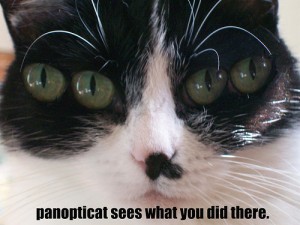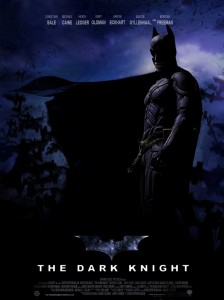I just finished watching the Frontline documentary “Growing Up Online”—a fairly ominous portrayal of social networking sites, online identity, and current intergenerational tussles between parents and youth over the public and private dimensions of cyberspace (the full episode is at www.pbs.org/wgbh/pages/frontline/kidsonline/).
The program draws its evidence from various parents, teachers, scholars, and young people who hold different views about the harms and benefits of online engagement among contemporary American youth. There are several vivid examples of how many young people are using the net as a place to create a postmodern pastiche of identities not afforded to them in their everyday lives (and that in turn, often change their identities in offline settings). At the same time, the producers explore the dark side of online communication through cases of cyberbullying, and some tragic stories about websites offering young people advice on how to become anorexic or even commit suicide. At the end of the program, viewers are urged to counteract these negative trends by finding ways to teach cyber-citizenship to students. One thing I noticed in the show is that, while the concept of “identity” is raised, it is both left a) critically unexplored, and b) disconnected from notions of citizenship. I would argue that productive discussions of cyber-citizenship presuppose two important considerations left unacknowledged in this and many media accounts of these issues.
My first concern is that (if my assumption is correct) there is far too little instruction or discussion of “identity construction” below the college level in American education. The teaching of cyber-citizenship in this program is reduced largely to citing mantras about the dangers of online communication to young people—a worthwhile endeavor, but too minimalist an approach for understanding the totalizing online environments which now envelop our lives. If Web 2.0 has pushed us into a new era of “mass interpersonal persuasion” (see BJ Fogg), where one can assert themselves in the public sphere in a way that is rapid, morphous, and amplified to an extent unprecedented in history, there are ethical and consequential stakes in doing all we can to help young people understand the force that the symbolic construction of identity plays on this massified scale. It seems to me that the tragedies resulting from cyberbullying partly follow from a failure to understand the role language and images play in identity construction—in how we can ingest and reify social symbols in self-fulfilling ways that tend to resist alternatives. Folks such as George Herbert Mead can help lead the way here. There are also discussions in the field of argumentation studies about how “one’s self is an argument” (see RL Lake) that may be helpful in understanding the self as a deliberation that is neither purely essentialized nor some kind of fraudulent multiformity. Many young people swing between these two extremes in their understandings of online identity—with devastating consequences…
This underscores my second point—the importance of understanding the relative fixity or fluidity of the concept of “identity” itself. The most democratic forms of communication on the Internet are likely to occur somewhere between the extremes of a completely fixed or fluid identity. In order to meet the demands of trust that community requires, it is helpful to have an anchored identity that locates one’s unique voice within a public sphere, while remaining accountable and responsive to the needs and concerns of others. On the other hand, healthy human communication is also founded on having a flexible identity, which is needed to adapt to others and meet the unique demands of ever-changing situations. As Neil Postman once remarked—have you ever met a “professor” who acts like a professor in every situation? A moralist who can’t stop being serious? Or a comic who is always “on”? We should introduce our students to the idea that polar understandings of identity often veer toward solipsism, and social identity is best promoted when paradoxically both fixed and fluid. Of course, this lesson is not unique to online communication. Yet given how selves are now being projected exponentially via the Internet, this would appear to be a matter with stakes that no modern curriculum or understanding of cyber-citizenship can leave behind. – Don Waisanen






